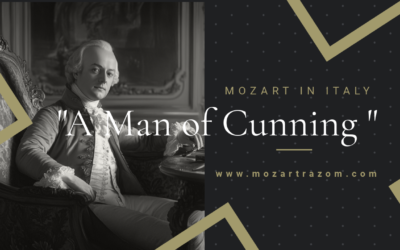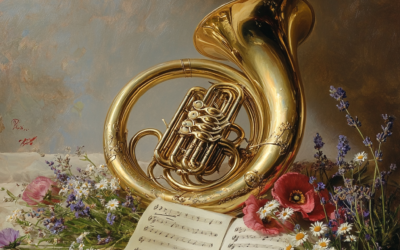Wolfgang Amadé Mozart
From London to Vienna: The Orchestrated Struggles of the Mozart Family
The Mozart family’s journey from London to Vienna was marked by illness, failed opportunities, and the relentless ambition of Leopold Mozart, revealing the pressures and challenges behind the facade of success.
Mozart in Italy: The Untold Story
Was Mozart truly a solitary genius, or was he merely the instrument of his father’s ambition? “Mozart in Italy” challenges the conventional narrative, revealing a complex dynamic between father and son that shaped the course of music history. Prepare to question everything you thought you knew.
“The struggles and setbacks they faced highlight the pressures placed on young Wolfgang and the lengths to which Leopold would go to achieve his goals”
Mozart in Italy
The tale of the Mozarts’ journey from London to Vienna is often recounted as a series of remarkable successes. However, when stripped of the embellishments and exaggerations propagated by Leopold Mozart, a more complex and challenging reality emerges. This journey was marked by illness, failed opportunities, and the relentless ambition of a father determined to craft a legacy for his son.
London: The Harsh Reality Behind the Curtain
In 1764, following their Parisian experience, the Mozart family crossed the English Channel to conquer London. Leopold, ever eager to prove the family’s worth to his friends in Salzburg, seized every opportunity to showcase his children, even in the pubs of London, while awaiting an audience at court. However, this triumphant display was abruptly halted when Leopold fell seriously ill in July, forcing the family into a prolonged stay in Chelsea. During this time, Wolfgang, then just eight years old, composed a series of simple, flawed pieces under the guidance of his sister. These compositions, often lauded as early signs of genius, are rife with errors and demonstrate the limitations of young Wolfgang’s abilities at that time.
The improvisations that Wolfgang and Nannerl performed across Europe, including London, were not spontaneous bursts of creativity, but rather rehearsed and structured pieces. These performances, meticulously planned by Leopold, aimed to impress audiences with flashy scales and arpeggios, but lacked memorable melodies and depth. The often-cited claim that Wolfgang had already mastered composition by this age is contradicted by these rudimentary works, which reveal the struggles and imperfections of a young, developing musician.
Vienna: A City of Missed Opportunities
The next significant chapter in the Mozarts’ travels was their journey to Vienna in 1767. This visit, like their time in London, was plagued by misfortune. The outbreak of smallpox, which claimed the life of Archduchess Maria Josepha of Austria, forced the cancellation of the children’s planned performances at court. Leopold, always seeking to maintain the momentum of his children’s careers, was left frustrated and desperate as Wolfgang fell seriously ill. It took months for him to recover, and by the time the family was able to return to Vienna in early 1768, the initial buzz surrounding the young prodigies had faded.
Wolfgang, though still marketable due to his youthful appearance, was no longer the child wonder who had astonished European audiences. Leopold, undeterred by the setbacks, decided it was time to transition his son from a performer to a composer, even pushing him to write an Italian opera for the Viennese stage. This ambitious plan was Leopold’s way of asserting his and Wolfgang’s capabilities, particularly in the eyes of their skeptics in Salzburg.
The Burden of Ambition
Throughout these travels, Leopold’s relentless ambition is evident. He was determined to elevate his son’s status and secure a place for him in the annals of history, often at the expense of the family’s well-being. The struggles and setbacks they faced in London and Vienna highlight the pressures placed on young Wolfgang and the lengths to which Leopold would go to achieve his goals.
You May Also Like
#1 A Man of Cunning
In the end, Leopold Mozart’s life was a testament to survival in a world where his talents were often overshadowed by those of his more gifted contemporaries and his own son. While his “Violinschule” remains a notable contribution to music pedagogy, it is clear that Leopold’s legacy is as much about his ability to navigate the challenges of his time as it is about his musical achievements. His story is one of ambition, adaptation, and the lengths to which one man would go to secure his place in history, even if that place was built on borrowed foundations.
@MozartrazoM
Mozart’s Letters: A Legacy of Disappearances, Edits, and Forgeries
Mozart’s letters reveal missing originals, questionable authorship, and forgeries, adding complexity to his legacy.
The Curious Case of Mozart’s “Lullaby”
Though long credited to Mozart, the lullaby “Schlafe mein Prinzchen, schlaf ein” hides a murky history. Initially published by Nissen, Constanze’s second husband, it has endured as one of Mozart’s supposed works—despite a trail of doubts. In 1798, Constanze herself noted sending “another piece of Mozart’s in place of the lullaby,” raising questions about its origins. By the 20th century, researchers revealed it as the work of lesser-known composers, yet it remains deceptively tied to Mozart, its myth surviving through mere footnotes.
Mozart’s Bassoon Concerto: A Question of Authorship
The Bassoon Concerto K.191 raises more questions than it answers. Long thought to have been composed for a Munich bassoonist, new evidence suggests Mozart had no clear performer in mind. The concerto’s disjointed movements and other dubious compositions attributed to Mozart add further complexity to his legacy
The Contradictions Behind Mozart’s Horn Concerto K.412
The authenticity of Mozart’s Horn Concerto K.412 remains hotly debated, as the work bears numerous contradictions in its manuscript history. The first movement may be original, but what about the rest? The inclusion of Franz Xaver Süssmayr and later editorial meddling raises serious questions about what we are really listening to when we hear this ‘Mozart’ concerto.
The Forgotten Viennese Quartets
Attributing Offertorium K.34 to Mozart is not just misleading, it reflects the careless methods used by 19th-century scholars to inflate his legacy. Without an autograph or solid evidence, this work should not be considered part of his output.”







